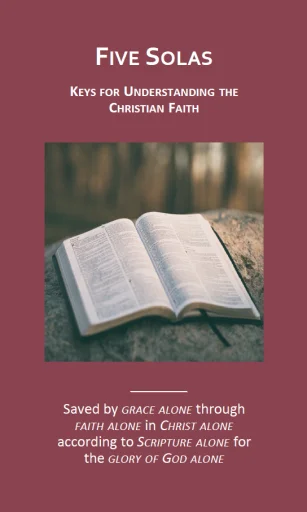In the Great Commission Jesus told us to make disciples. Every Christian must do this first, in his own life, then with his family, and stretching out to make disciples of his neighbors. The foundation of growth in our faith is built by feeding ourselves through reading the Bible, praying, listening to good preaching and putting what we learn into practice. Many often make the mistake of thinking we need to know the whole bible perfectly before we share with others. We never will reach that goal, but the basic message of the gospel is very simple. Then, we begin to share the gospel and our knowledge with our closest, most comfortable, relationship. Disciples will continue to learn, to apply, and teach or edify others. This completes the cycle of the growth in faith. You are a disciple.
Here are 6 ways you can make disciples
1. Raising our childrenWe teach our children, telling them about who God is and what he has done, teaching them to love the Lord. God command us as parents to teach them scripture and teach them about God (Proverbs 22:6). Many who do not grow up with this kind of teaching abandon the faith after their youth.
2. Personal evangelismWe share the gospel one on one in our daily interactions with others. You must be very deliberate about sharing the gospel during your daily routine or you will lose focus on the purpose. The idea of friendship evangelism is often high on friendship and low on evangelism. It is built on a false assumption that you need to earn the right to speak to someone about the gospel. We should build our personal relationships on an open recognition of our faith.
3. Bible study\Small GroupsInvite your friends and neighbors to get involved in studying the Bible. New Christians and curious unbelievers can find a comfortable setting to learn and grow in their knowledge of God. It can be great to correct misconceptions and deepen the faith of these people through the reading and study of God’s word. Some people are more comfortable in a small group, and some are less apprehensive about attending if it is held in someone’s home rather than the formality of a church.
4. Church servicesOur worship service should be welcoming to new believers. However, we should not water down the gospel just to get a palatable message for the seeker. Paul and the other apostles did not. Each Sunday we gather together as God’s people to worship a holy God, then we go out to serve and to evangelize the lost. Getting others in to hear a sermon can help more clearly explain God and his redemption when we feel inadequate.
5. Open-Air or ‘Street’ preachingPaul and others went out into the streets and marketplace to reason with and proclaim Christ to whomever passed by. Paul encouraged Timothy to not neglect the public reading of Scripture. God’s word does not go out void, many who would otherwise turn away may hear the gospel and be convicted by God’s law or compelled by His grace. Street preaching often gets a bad rap. Keep in mind the command in 1 Peter to give the reason for our hope with gentleness and respect. I have found that in the presence of good open-air preaching, the soil is fertile to engage with individuals and share the gospel one-on-one.
6. Gospel boothSet up a booth in a location where there is high foot-traffic with highly visible information and questions to prompt conversations. This approach engages Christians with many unbelievers or new Christians to respectfully explain, ask questions, and challenge their thinking toward God and what He has done. The topics can be prompted by the information at the booth, but often the conversations wander into many related topics. Tracts are used to start conversations or leave them with more information to read at home. Additional booklets or pamphlets for challenging and educating the public are useful as well.
When I talk with people about the Great Commission and making disciples, the single most common response is that they like the approach from the quote, “Preach the Gospel, if necessary use words.” The basic idea is that we live such a good life that others recognize something different in us and ask us about it. In my multiple decades on earth, I have only had that happen once to me. Often this becomes an excuse not to use words. We must use words!
Our lives may bear witness to what God has done for us, but we must use words to explain this to our neighbor. Just as God’s world bears witness to Him so that we are without excuse; we all know he exists, Romans 1:18-23. However, we must read God’s Word, the Bible, to understand Him fully, Proverbs 9:10, and to know what he has done, 1 Corinthians 15:3-4. Our lives can be a good witness to God’s grace, but since we are not freed from sin, our lives can also be a poor witness.
It is God’s Word that transforms lives. Check out the Training page for more information and training opportunities to put sharing the gospel into practice.
Additional Learning
- NCFIC Raising Godly Children.
- Study on why young people abandon faith.
- Example of street preaching.
- Why Gospel Booth ministry.
Prayer
You can support us with your prayers. Please pray that…
- God will develop and grow the skill of all disciples to be fishers of men.
- Each disciple will find ways of spreading the gospel and growing God’s Kingdom all around us.
 Always Be Prepared
Always Be Prepared
 Sharing Justification by Faith
Sharing Justification by Faith
 Five Solas Business Card
Five Solas Business Card
 Pella’s Biblical Roots Pamphlet
Pella’s Biblical Roots Pamphlet